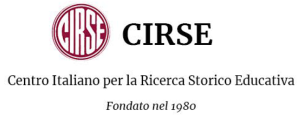Call for Papers
Call for Abstracts Jahrbuch für Historische Bildungsforschung 27 (2021)
Pubblicato il | Call for Papers

Call for Abstracts Jahrbuch für Historische Bildungsforschung 27 (2021) Subject focus “Body” Editorial team: Esther Berner & Johanna Lauff A look at history shows that the educational value attached to gymnastics, sport, and physical education as a component of the school curriculum is subject to fluctuations and changes. These are caused by social, political, and economic transformations as well as scientific “trends”. Interest in educational science seems to have increased again recently – through the back door of neuroscience. “Sport makes you smart!”[1] and “Movement – the miracle cure”[2] are just a few of the slogans one comes across in both scientific and popular science contexts. Sometimes even the task of the school is equated with that of a fitness studio, and the job of a teacher with that of a fitness trainer (M. Spitzer).[3] Performance is a salient reference – not only in this analogy, but also when demands for more sport at schools are justified by pointing out poor results in PISA and other school performance tests.[4] Tying in with this, and reaching beyond the sphere of institutionalised education, changes in body and movement concepts, and in body representations and practices, appear to be conspicuous indicators of social and socio-cultural changes. While the body, physicality, and phenomena of corporeality have formed and continue to form the focal points of an almost bewildering number of publications in sociology, gender studies, history, and cultural studies, these categories tend to be neglected in historical educational research. A brief period of interest in the 1980s, during which “the return of the body”[5] was the topic on everybody’s lips, did not bring about much change in this regard. Thus, the predominant image that remains in historical education research is an established but one-dimensional one according to which ancient physical culture was replaced by body-hostile Christianity, and Enlightenment education helped restore justice to physical education, while the life reform movement, in conjunction with progressive education, in turn freed the body from its straightjacket, imposed by the authoritarian Wilhelmine state together with military body drill. Subsequently, it was mainly the period of National Socialism that received attention from educational historians with regard to physical education. The reception of Foucault did result in a number of historical and educational works that focused on the body in the context of school discipline and governmental practices, but even in these cases it was mostly given cursory attention. In contrast, the aim of this subject focus is to analyse the body / corporeality as a basic category in educational processes and interactions. The subject can be broached on different levels and from different perspectives: in the sense of addressing it explicitly by referring to concrete educational body practices and theories, as a medium for incorporation, habitus formation, and subjectivation, or as a pedagogical-anthropological category. For humans, the body and corporal movement constitute direct access to the world; education and socialisation, experience and learning require the physicality or corporeality of everyone involved. In the context of these processes, one could also inquire into the role of objects (school desks, exercise equipment, playgrounds, etc.) and spatial arrangements. There are no restrictions in terms of the periods examined, although the emergence of the “Human Sciences” (M. Foucault), but also the advent of new technologies and media for the visualisation of body and movement in the late 19th century accorded the body a new presence. Psychophysiology in particular has given new impetus to the old question of the relationship between body and mind. The philosophical-epistemological debates of the last third of the 19th century also had consequences for the development of education as an autonomous discipline. Subsequently, a pluralisation of aesthetic and socio-cultural corporal norms took place that increased the significance of the body as a means of distinction in the context of inclusion and exclusion. At the same time, the push for modernisation at the turn of the century – the gradual emergence of mass media and an entertainment and leisure “industry”, increased mobility, etc. – generated a transnational discourse on the body, which arose from the boom in body and movement issues. On the basis of these findings, we are calling for contributions with a historical educational perspective in the following and related subject areas: Questo indirizzo email è protetto dagli spambots. È necessario abilitare JavaScript per vederlo. Johanna Lauff M.A., Helmut Schmidt University, University of the German Federal Armed Forces in Hamburg, Questo indirizzo email è protetto dagli spambots. È necessario abilitare JavaScript per vederlo. [1] E.g. Beck, F., Sport macht schlau. Mit Hirnforschung zu geistiger und sportlicher Höchstleistung. Berlin 2014. [2] Zeit Online, 18/2/2014. [3] Gehirn und Geist, 14/11/2008. [4] Compare e.g. Haas, S, Väth, J., Bappert, S. & Bös, K., Auswirkungen einer täglichen Sportstunde auf kognitive Leistungen von Grundschulkindern. Sportunterricht, 58(2009), p. 272-232. [5] Kamper, D. & Wulf, C. (eds.), Die Wiederkehr des Körpers. Frankfurt a.M. 1982. Call for Abstracts
- Body and movement in educational spheres of institutional and non-institutional nature
- The body as a medium and effect of processes of education, socialisation, and habitus formation
- The significance of the body in gender constructions and education
- The role of education in developing individual and collective bodily disciplines
- Effects of mind-body epistemological transformations on theories of education and learning
- Corporal and physical experience in the context of cognition and learning
- Physical and aesthetic aspects of education and educational ideals
- The equipment of physical education settings with objects, the significance of specific spatial arrangements and of media and technologies
